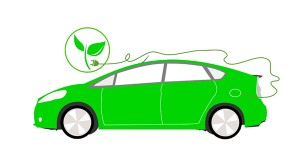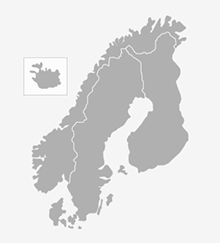
Six per cent of Norway’s hydropower output would be sufficient to operate the entire passenger car fleet, if completely electrified. Photo: TØI
Thanks to the substantial purchase tax levied on new passenger cars, the Norwegian government has a quite powerful climate policy instrument at its hand. Continued application of this instrument may halve the greenhouse gas emissions from Norwegian cars within two or three decades.
On account of the higher energy efficiency of electric motors compared to internal combustion engines, the total energy consumption of the Norwegian car fleet may decrease considerably, to the profit of society in general and consumers in particular. Six per cent of Norway’s hydropower output would be sufficient to operate the entire passenger car fleet, if completely electrified.
Public transport has an indispensable role to play in the daily life of urban citizens, but a fairly modest potential for greenhouse gas abatement. Even very ambitious packages combining reduced fares with improved level-of-service fail to achieve more than a few percentage points’ reduction in CO2 emissions from travel.
Improving the road network so as to allow for substantially higher speed will increase emission in the short as well as in the long run. Cars become more competitive, and as they speed, per kilometre emissions go up.
Earmarking the environmental tax will enhance its public acceptability, and so will increased faith in the fairness and effectiveness of the tax measure.
Efficient corridors for freight trains may substantially enhance the competitive edge and market share of the rail mode. As transports are transferred from road to rail, greenhouse gas emissions are cut to a fraction.
It appears doubtful whether the mechanisms for achieving climate policy goals carry sufficient weight when meeting with conflicting goals and considerations. A proposal to introduce a climate change act, to enforce and monitor greenhouse gas abatement policies, is pending in the Norwegian Parliament.
Report:
Norway’s path to sustainable transport. TØI Report 1321/2014.
Authors: Lasse Fridstrøm, Knut H. Alfsen.
Link to summary in English.
Link to full report in Norwegian.
 Contact: Contact:Lasse Fridstrøm lef@toi.no TØI, Norway |






Follow us: